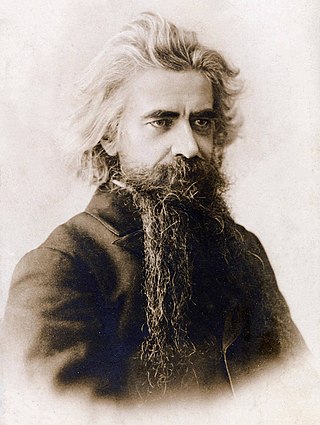
Vladimir Sergeyevich Solovyov was a Russian philosopher, theologian, poet, pamphleteer, and literary critic, who played a significant role in the development of Russian philosophy and poetry at the end of the 19th century and in the spiritual renaissance of the early 20th century.

Arkhip Ivanovich Kuindzhi was a Russian landscape painter of Greek descent.
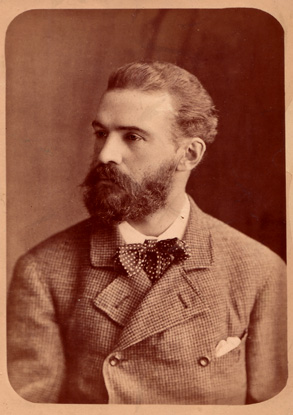
Achilles Nikolayevich Alferaki was a Russian composer and mayor of Greek descent. His brother was Sergei Alphéraky.
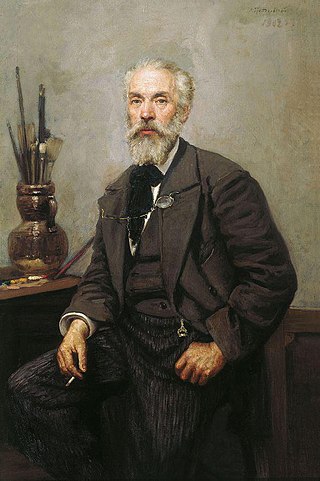
Konstantin Apollonovich Savitsky was a Russian realist painter born in the city of Taganrog in the village Frankovka or Baronovka, named after former governor Otto Pfeilizer-Frank. Today this area is occupied by the Taganrog Iron and Steel Factory TAGMET.

Nikolay Fyodorovich Shcherbina was a 19th-century Russian poet.
Valentin Yakovlevich Parnakh (1891–1951) was a Soviet musician and choreographer, who was a founding father of Soviet jazz. He was also a poet, and translated many foreign works into Russian, notably Spanish poetry and plays.

Gleb Ivanovich Uspensky was a Russian writer and a prominent figure of the Narodnik movement.

Novoye Vremya was a Russian newspaper published in St. Petersburg from 1868 to 1917. Until 1869, it was published five times a week. Then it was published every day until 1881, when there were both morning and evening editions. In 1891, a weekly illustrated supplement was added.

Nikolai Aleksandrovich Nevsky was a Russian and Soviet linguist, an expert on a number of East Asian languages. He was one of the founders of the modern study of the Tangut language of the Western Xia Empire, the work for which he was awarded the degree of Doctor of Science in Philology during his life, and Lenin Prize posthumously. He spent most of his research career in Japan before returning to the USSR. He was arrested and executed during the Great Purge; his surviving manuscripts were published much later, starting in 1960.

Teodor Ilyich Oizerman was a Soviet and Russian philosopher and academician.
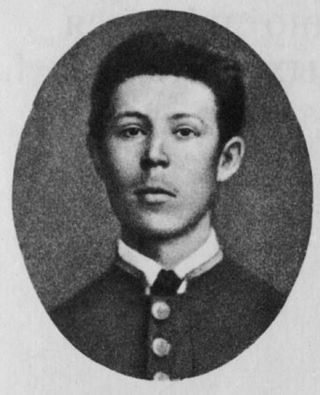
Alexander Pavlovich Chekhov, was a Russian novelist, short story writer, essayist and memoirist, and the eldest brother of Anton Chekhov.

Mikhail Matveyevich Stasyulevich was a Russian writer, scholar, historian, journalist, editor and publisher. He is best known as the founder and editor-in-chief (1866–1909) of Vestnik Evropy, one of Russia's leading literary magazines of the time.

Boleslav Mikhailovich Markevich was a Russian writer, essayist, journalist, and literary critic of Polish origin; author of a number of popular novels, including: Marina of the Aluy Rog (1873), A Quarter of a Century Ago (1878), The Turning Point (1881) and The Void.
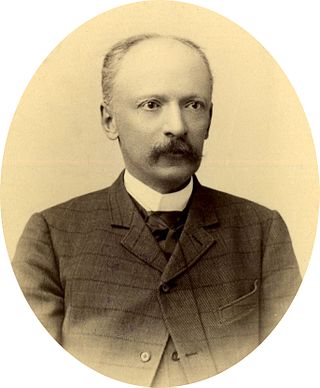
Vasily Grigorievich Avseenko was a literary critic, writer and journalist from the Russian Empire.
Studies in the Philosophy of Marxism was an account of a seminar held by Vladimir Bazarov, Alexander Bogdanov, Anatoly Lunacharsky, Jakov Berman, Osip Gelfond, Pavel Yushkevich and Sergey Suvorov published in St Petersburg in 1908.
Vladimir Semionovich Spirin was a Russian philologist, sinologist, historian, primarily interested resided in classical Chinese philology and Chinese philosophy. Throughout his career he was a lecturer of Saint Petersburg State University, researcher at Saint Petersburg's branch of the Institute of Oriental Studies of the Russian Academy of Sciences, Saint Petersburg Russia, Candidate of Sciences.

Mikhail Pavlovich Chekhov was a Russian writer and theater critic; the youngest brother and biographer of Anton Chekhov.

Vladimir Veniaminovich Bibikhin was the most prominent Soviet and Russian religious thinker of the New Russia and continued the Russian tradition of early 20th century religious thinking. He was known as a translator, philologist, and philosopher. He is best known for translations of Martin Heidegger, which caused mixed reactions among specialists. He lectured in authors' courses at the philosophy faculty of Moscow State University. Bibikhin undertook a sufficient number of translations to enable him to formulate his own theory of Europe. This theory consisted in part of a return to the past, and enlivening the most valuable achievements of the past culture.















